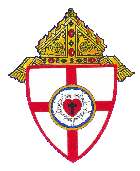Ordinatio Sacerdotalis (English: Priestly Ordination) is an ecclesiastical letter issued by Pope John Paul II on 22 May 1994 in which he discussed the Catholic Church's position requiring "the reservation of priestly ordination to men alone" and wrote that "the Church has no authority whatsoever to confer priestly ordination on women". While the document states that it was written so "that all doubt may be removed regarding a matter of great importance", it has been contested by some Catholics, as to both the substance and in the authoritative nature of its teaching. Many scholars agree it is not an infallible statement, as it does not define a teaching related to faith or morals. On the contrary, Cardinal Gerhard Ludwig Müller argues this prevalent opinion ignores that the document itself specifies that this matter does pertain to faith since it is "a matter which pertains to the Church's divine constitution itself", and it is the Pope's prerogative to make such definitions: "It is the province of the Magisterium to decide if a question is dogmatic or disciplinary: in this case, the Church has already decided that this proposition is dogmatic and that, because it is divine law, it cannot be changed or even reviewed" [1]
Ecclesiastical letters are publications or announcements of the organs of Roman Catholic ecclesiastical authority, e.g. the synods, but more particularly of pope and bishops, addressed to the faithful in the form of letters.

Pope John Paul II was the head of the Catholic Church and sovereign of the Vatican City State from 1978 to 2005.

The Catholic Church, also known as the Roman Catholic Church, is the largest Christian church, with approximately 1.3 billion baptised Catholics worldwide as of 2017. As the world's "oldest continuously functioning international institution", it has played a prominent role in the history and development of Western civilisation. The church is headed by the Bishop of Rome, known as the pope. Its central administration, the Holy See, is in the Vatican City, an enclave within the city of Rome in Italy.
Contents
Citing an earlier Vatican document, "Declaration Inter Insigniores on the question of the Admission of Women to the Ministerial Priesthood" issued by the Congregation for the Doctrine of the Faith in October 1976, Pope John Paul explains the official Roman Catholic understanding that the priesthood is a special role specially set out by Jesus when he chose twelve men out of his group of male and female followers. Pope John Paul notes that Jesus chose the Twelve [2] after a night in prayer (cf. Lk 6:12) and that the Apostles themselves were careful in the choice of their successors. The priesthood is "specifically and intimately associated in the mission of the Incarnate Word himself." [3]
The Congregation for the Doctrine of the Faith is the oldest among the nine congregations of the Roman Curia. It was founded to defend the church from heresy; today, it is the body responsible for promulgating and defending Catholic doctrine. Formerly known as the Supreme Sacred Congregation of the Roman and Universal Inquisition, it is informally known in many Catholic countries as the Holy Office, and between 1908 and 1965 was officially known as the Supreme Sacred Congregation of the Holy Office.

Jesus, also referred to as Jesus of Nazareth and Jesus Christ, was a first-century Jewish preacher and religious leader. He is the central figure of Christianity, and is widely described as the most influential person in history. Most Christians believe he is the incarnation of God the Son and the awaited Messiah (Christ) prophesied in the Old Testament.
The letter concludes with the words:
Wherefore, in order that all doubt may be removed regarding a matter of great importance, a matter which pertains to the Church's divine constitution itself, in virtue of Our ministry of confirming the brethren. [4] We declare that the Church has no authority whatsoever to confer priestly ordination on women and that this judgment is to be definitively held by all the Church's faithful. [lower-alpha 1]
The phrase "definitively held by all the Church's faithful" pertains to the full assent of faith that is given to the dogmas of the Catholic Church. Nevertheless, one opinion is that Ordinatio Sacerdotalis was not issued under the extraordinary papal magisterium as an ex cathedra statement, and so is not considered infallible in itself. Some consider its contents infallible under the ordinary magisterium, saying this doctrine has been held consistently by the Church. In a responsum ad dubium (reply to a doubt) explicitly approved by Pope John Paul II and dated October 1995, the Congregation for the Doctrine of the Faith issued its opinion that the teaching of Ordinatio Sacerdotalis had been "set forth infallibly by the ordinary and universal Magisterium" and accordingly was "to be held definitively, as belonging to the deposit of faith". [5] [6]

In the Catholic Church, a dogma is a definitive article and essential part of the faith (de fide) that has been solemnly promulgated by the college of bishops along with the Pope at an ecumenical council or by the pope alone, when speaking in a statement ex cathedra, in which the magisterium of the Church presents a particular doctrine as necessary for the belief of all Catholic faithful. For example, Christian dogma states that the resurrection of Jesus Christ is the basic truth from which salvation and life is derived for Christians. Dogmas regulate the language, how the truth of the resurrection is to be believed and communicated. One dogma is only a small part of the Christian faith, from which it derives its meaning. A dogma of the Catholic Church is defined as "a truth revealed by God, which the magisterium of the Church declared as binding." The Catechism of the Catholic Church states:
The Church's Magisterium asserts that it exercises the authority it holds from Christ to the fullest extent when it defines dogmas, that is, when it proposes, in a form obliging Catholics to an irrevocable adherence of faith, truths contained in divine Revelation or also when it proposes, in a definitive way, truths having a necessary connection with these.
The magisterium of the Catholic Church is the church's authority or office to give authentic interpretation of the Word of God, "whether in its written form or in the form of Tradition." According to the 1992 Catechism of the Catholic Church, the task of interpretation is vested uniquely in the Pope and the bishops, though the concept has a complex history of development. Scripture and church tradition "make up a single sacred deposit of the Word of God, which is entrusted to the Church", and the magisterium is not independent of this, since "all that it proposes for belief as being divinely revealed is derived from this single deposit of faith."
In 1998, the Congregation for the Doctrine of the Faith issued another opinion, a Doctrinal Commentary on Ad Tuendam Fidem , [7] which said that the teaching of Ordinatio Sacerdotalis was not taught as being divinely revealed explicitly, although it might someday be so taught in the future, that is to say, it has not been determined whether the doctrine is "to be considered an intrinsic part of revelation or only a logical consequence", yet in either case it is certainly definitive and to be believed infallibly.




